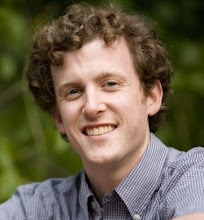 Yesterday, the pastoral staff had a daylong planning retreat where we mapped out our summer worship schedule. The plan is to focus each week of the summer on a different aspect of the worship service. So we'll be devoting different Sundays to gathering, confessing, baptism, reading Scripture, proclaiming the word, Eucharist, offering, silence & intercession, hymnody, and sending. I don't know whether this is a fair characterization of people's approach to worship at this church, but my general sense is that it is easy for us to view the Sunday morning liturgy as something we attend or consume in order to legitimate as "church" the mission work and business meetings we have during the rest of the week. Does "going to church" make you a Christian? The answer might be yes, but the determinative factor is participation, not attendance. So when we take the summer to slow things down and pay attention to what goes on in worship (and why), our hope is not only to increase people's understanding of the liturgy being performed before them, but also to show them how our worship practices, when done with care and intention, can cultivate habits of being that guide everything we do after we leave the sanctuary.
Yesterday, the pastoral staff had a daylong planning retreat where we mapped out our summer worship schedule. The plan is to focus each week of the summer on a different aspect of the worship service. So we'll be devoting different Sundays to gathering, confessing, baptism, reading Scripture, proclaiming the word, Eucharist, offering, silence & intercession, hymnody, and sending. I don't know whether this is a fair characterization of people's approach to worship at this church, but my general sense is that it is easy for us to view the Sunday morning liturgy as something we attend or consume in order to legitimate as "church" the mission work and business meetings we have during the rest of the week. Does "going to church" make you a Christian? The answer might be yes, but the determinative factor is participation, not attendance. So when we take the summer to slow things down and pay attention to what goes on in worship (and why), our hope is not only to increase people's understanding of the liturgy being performed before them, but also to show them how our worship practices, when done with care and intention, can cultivate habits of being that guide everything we do after we leave the sanctuary.This is the central argument of the Blackwell Companion to Christian Ethics, which I've just started reading. It was edited by two folks from Duke: ethics professor Stanley Hauerwas, and Sam Wells, who is Dean of Duke Chapel. Here's a taste: "[Baptism] creates a profound conception of politics, seen now as the best working of an organism - the Body of Christ - that sees itself as being genuinely a body, rather than a mass of discrete individuals. Worship is, or aspires to be, the manifestation of the best ordering of that body, and is thus the most significantly political - the most 'ethical' - thing that Christians do."

No comments:
Post a Comment